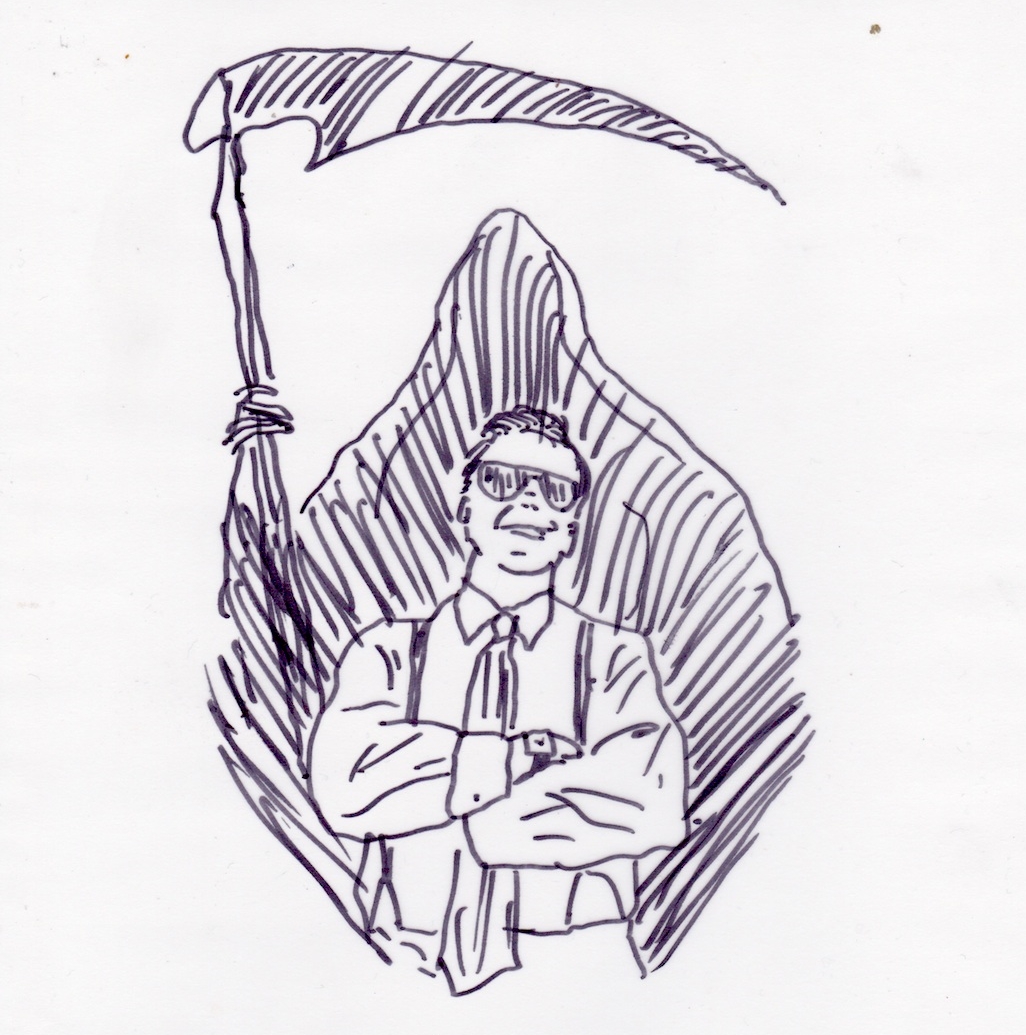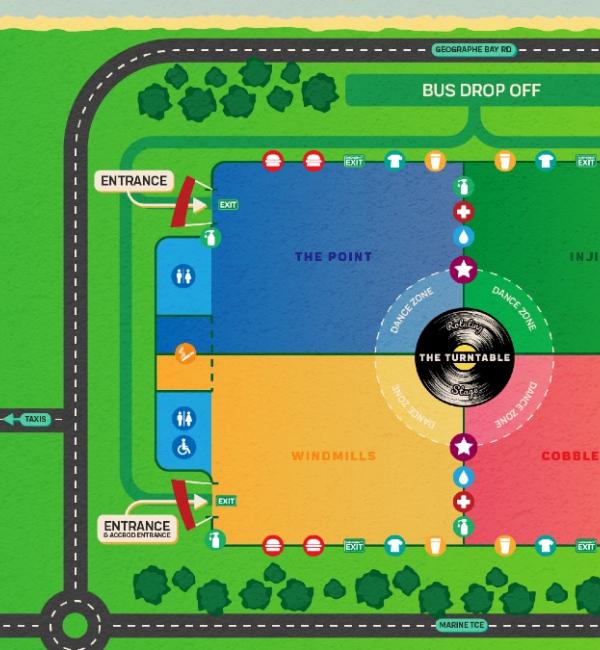
There’s things that only seem to happen at live shows: Like drifting cheerfully up unlit stairwells streaked with ancient grime towards rooms filled with industrially hazardous levels of noise. Like smiling and involuntarily cringing at the same time—assuming the upper body pose of a Velociraptor as someone throws themselves off stage and into the crowd beside you. Like nodding patiently for 20 consecutive minutes while being whipped in the mouth by long, unconditioned hair—hair that doesn’t appear unkempt so much as disowned.
Then there’s things that only seem to happen at ScotDrakula shows: Like the kind of osmosis that occurs between the areas previously designated ‘stage’ and ‘audience’. Like the voltage that pours out of the band members’ bodies—synthesised from nervy static and gushing in uninsulated waves over the crowd’s raw, shiny faces. Like Matt’s voice rattling like hot steam through frozen Canadian pipes. Like Evie’s junkyard perfectionism—burying a week full of our collective woes in a hail of ride and Tamborine. Like a love for the crowd that approaches antagonism. And like ScotDrakula bassist Dove, inimitable Dove. Dove is an event that happens every show, wafting over the stage and quietly nailing it down every time, hoarding a wealth of complexity in what he does if you really wanna listen to what happens towards the end of each phrase.

My Own Private Ignorance
On May 20th everything ScotDrakularean seemed amplified. The indiscriminately named Tim From Melbourne (who has been playing guitar with SD for a good long while now) broke up a fight in the audience using only a microphone and Matt’s flinty scowl. Matt himself was letting some truly champagne song introductions erupt out of him between tunes: “this one’s about needing to see a psychiatrist but masculinity won’t let you.” Evie was playing so damn good that TFM back-announced her shift from a hi-hat to a ride to the audience. By the end of the show there were at least three bands and great gouts of audience onstage making diverse forms of noise (impossible to tell who and what, given the generally engorged membership of Mesa Cosa) And Dove, naturally, was in fine form. The crowd shouted his name. The crowd professed their love. The crowd raised supplicating limbs towards him, like lepers to a mostly nonchalant, if not marginally embarrassed Christ.
I had an excellent time. An excellent time that was periodically spattered with creeping unease, a stain of a size only truly visible in the sober light of Saturday morning. The entire reason for the show after all, was that Dove was leaving ScotDrakula. I think the popular term for this state is denial. The facts were right in front of me, around me—I was immersed in the goddamn facts, I spent hours marinating in them. And perfectly ignoring them. It seems difficult, even a little unbelievable. But what it isn’t, is rare.
The Absurdity Paradox
French writer and philosopher Albert Camus thought that a kind of natural denial was more than just common though, he contended that it formed the basis of human interaction with the world. In The Myth of Sisyphus Camus described the human experience as a search for meaning in a world that offered none—a denial so fundamental that it rendered the world, in his view “absurd.” But like the titular Sisyphus, who was condemned to push a boulder up a hill for eternity only to watch it roll back down, humans continue to search for meaning in religious fables, in the fickle hearts of each other and the grand nonchalance of the natural world.
Denial of Death
Similarly, Psychologist and philosopher Ernest Becker’s book with the largely self-explanatory title: Denial of Death explored the large-scale denial inherent in human existence. In it he claimed that all of human civilisation was a giant symbolic defense mechanism against the knowledge of our own mortality. It won the Pulitzer Prize in 1974 two years after his death. But the idea is older than Becker and Camus. German philosopher Arthur Schopenhauer wrote about the human “will to life” in 1818, again claiming that the friction between human need for meaning and the world being devoid of it was a glaring denial that caused near-constant pain. And the only thing that Schopenhauer claimed to offer temporary relief from the pain of living was art, and most particularly, music. So maybe I have an out here, my senses joyously wrecked by the music in front of me, the art of ScotDrakula swallowing it’s surrounding painful information like a very attractive black hole
Willful Blindness
Author and serial entrepreneur Margaret Heffernan calls this kind of denial ‘willful blindness’—the title of her book on the subject in which she talks about calamitous love affairs to dictatorships and how we choose, often unconsciously, to remain unseeing. And maybe this is a better word than denial. Denial is a word best reserved for guilty insurance fraudsters and climate sceptics. But wilful blindness is more of a semi-conscious inattention. I’m reminded of William of Ockham (he of the Ockam’s Razor thinking tool) who, after rendering organised religion logically untenable in his writing, would often end with a small line about how it was all and only possible because of God. Very conscious wilful blindness that undoubtedly saved him from heresy and gruesome deat
My wilful blindness was admittedly far less conscious/gravid. But nonetheless, as Camus/Schopenhauer/Becker et al would argue, it’s the same kind of lie—small lies that do heavy lifting. Denial that keeps us (me) ticking.
My brain cherry-picked a phrase towards the end of the night when Matt said something about them “seeing [us] again in whatever form that takes.” I continue to hold them all to it.
-Paul Cumming
Simile is a weekly series by Cool Accidents fave/regular Paul Cumming aka Wax Volcanic that unravels current moments in music and follows the threads to some strange and strangely familiar places.





